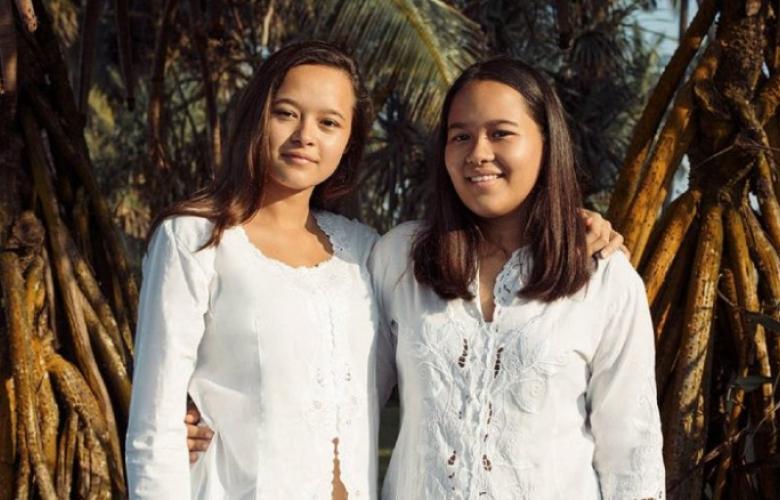Traditionally, the Balinese carried their produce in woven banana leaves, which they'd toss into the bush or burn as they would naturally decompose. In the early 1990s, supermarkets started offering cheap plastic bags and soon after, most shops on the island followed suit. As plastic bags do not decompose, this has lead to serious consequences for Bali’s beaches and oceans.
Half of Bali’s 20,000 cubic metres of waste a day is plastic. In the monsoonal months of November to February, rivers of plastic litter are flushed into the ocean. US surfing legend Kelly Slater tweeted in 2012: "If Bali doesn't #DoSomething serious about its pollution, it'll be impossible to surf here in a few years. Worst I've ever seen." Indonesia is the second largest plastic polluter in the world after China, with its plastic waste accounting for 10 per cent of marine plastic pollution.
Students Melati and Isabel Wijsen from Bali's Green School said "We had a lesson in class about positive world leaders, change makers like Nelson Mandela, Martin Luther King, Lady Diana, and I remember at the ages of 10 and 12 we went home thinking about what we could do as kids from an island. They founded an organization called Bye Bye Plastic Bags, an NGO driven by young people to get the population of Bali to stop using plastic bags.
“We looked around at our own beaches and all the plastic trash,” says Melati. “Many other countries and cities had already successfully banned plastic bags. We thought, ‘If they can do it, we can do it, too.’ ”
Starting off small, the sisters started by organising beach clean-ups and giving school presentations putting a spotlight on how their "island of the gods" had become the island of garbage. This made a small dent in the problem, but they soon realised it was on such a scale, they would need backing from the Indonesian government. So they started a petition thinking 'With a million signatures they can't ignore us'," said Isabel. The petition was made to convince the Governor of Bali, Made Mangku Pastika, to introduce a ban on plastic bags. The girls went to shopping malls, schools and Bali's Ngurah Rai International Airport asking people to support the Bye Bye Plastic Bags (BBPB) campaign. In just a few weeks, they had achieved 20,000 signatures.
Taking the cause very seriously, the girls threatened to go on a hunger strike after 18 months of requests to see the Governor of Bali, Mangku Pastika, to get his attention. This was to be performed under the supervision of a dietician and only from sunrise to sunset due to their young age. Eventually he agreed to see them, and they showed up with a memorandum of understanding confirming that the governor would support their moves to make Bali a plastic-bag-free zone. "He agreed to sign right there," Melati says. "He even committed to being a member of the BBPB team."
By the end of 2016, Isabel and Melati have given an INK Talk in India, a TED Talk in London, an address at the 2014 Ocean Plastic Pollution Summit in California, and another at the Conference of Youth in the lead-up to the 2015 Paris Climate Conference. They'd also launched a BBPB offshoot campaign called ‘One Island One Voice’, which aims to bring together all of Bali's environmental groups under a single umbrella.
Bali declared that it would be free of plastic bags by 2018, with the rest of Indonesia to follow by 2021. In February this year, 23 cities in Indonesia started trials where consumers pay 200 rupiah (about 2 cents) for a plastic bag, while Bali has announced a Clean and Green policy to discourage littering and encourage recycling.
Isabel and Melati have inspired people on a global scale with fifteen countries, including Nepal, Mexico, Italy, Colombia, Myanmar and Australia starting BBPB campaigns.
"If we could meet with world leaders and speak to them, we would tell them to listen more to the youth, consider us as more than just inspiration. We have bright innovative ideas of how to deal with some of the greatest issues of our time," says Melati.
Sources: Coastal Living, TED, CNN, Sydney Morning Herald
Similar to this:
Indonesia's medical tourism set to improve healthcare for locals and attract visitors
Bali’s promotion on the international stage set to boost the economy
Bali’s tourism continues to grow with new hotel rooms, and additional flights





